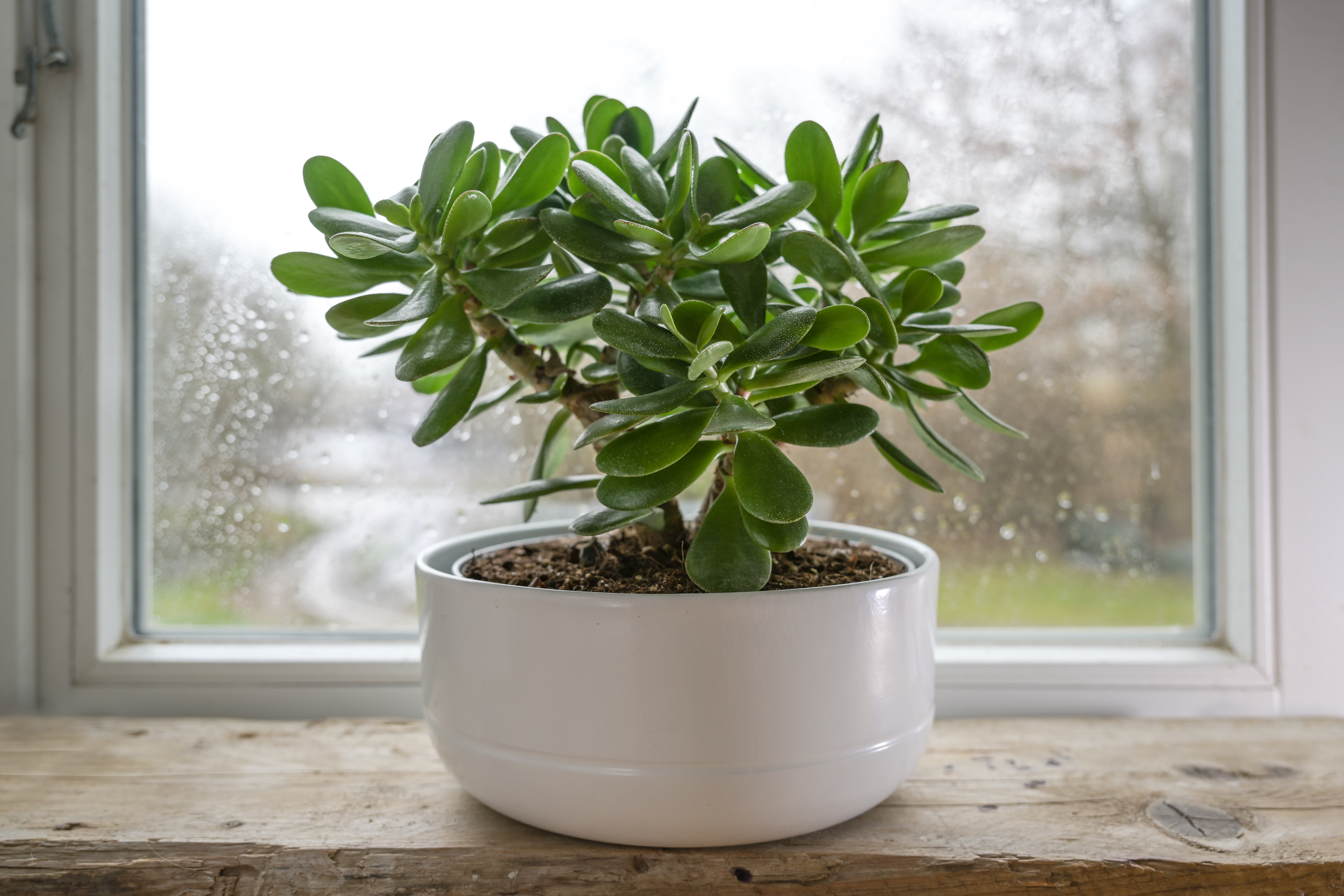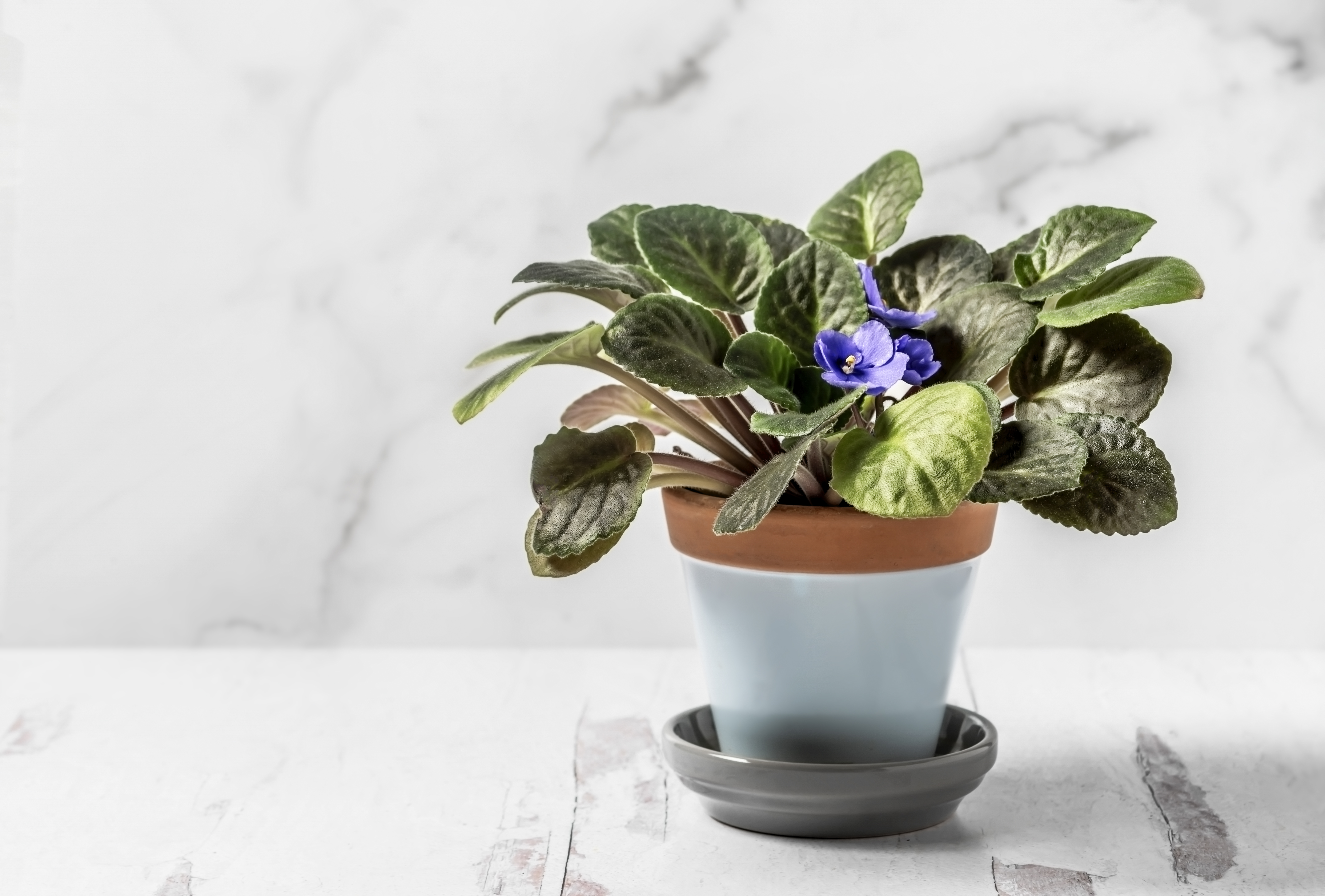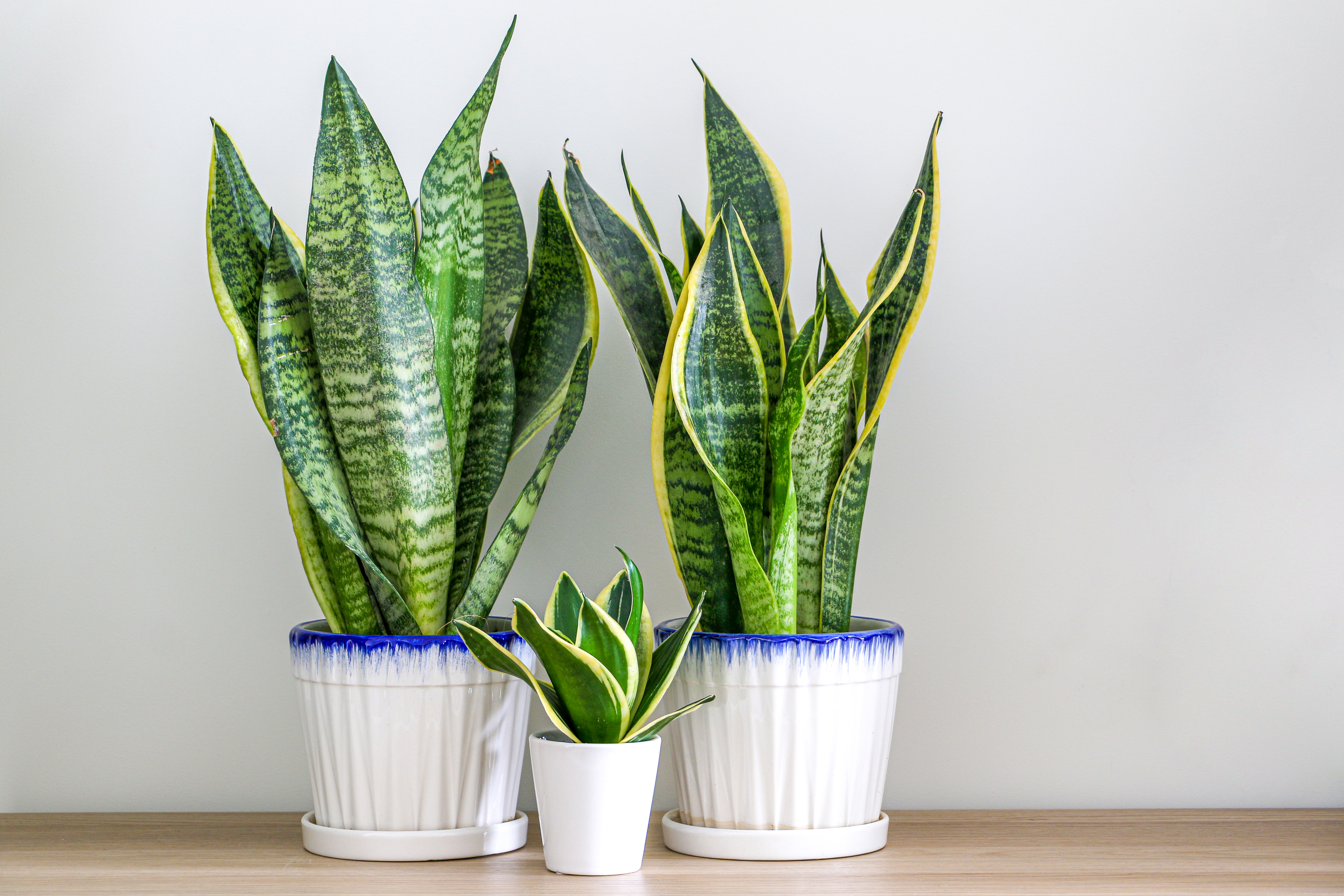
Plants have a way of calming the mind, while creating a space that embraces nature, peace and color. With houseplants becoming quite popular over the years, these graceful plants have become more than just an accessory. For some, it's a way of life.
The living room is the center of every household and a space where you and your guests share stories and exchange drinks. Adding Feng Shui plants into your living room will not only brighten up your home, but it will also add a touch of uniqueness and allure. Anjie Cho, New York-based interior architect, Feng Shui advisor and author of Holistic Spaces, 108 ways to create a Mindful and Peaceful Home tells me: 'Feng Shui is the art of looking at your environmental spaces that comes from Asia. It looks at how we can improve the flow of energy or ‘Chi QI’ —(which is a life force energy in our spaces) by looking at the placement of objects, but also how we interact and move through our spaces’.
If you're looking to add a positive force of energy into your home, here are a few recommendations from an expert on must-have Feng Shui living room plants.
1. Pothos

Botanical Name: Epipremnum aureum
Plant type: Vines
Foolproof even for beginners, pathos are one of the easiest plants to take care of and are a great choice to add into your living room. This low maintenance plant is great to use for container planting as well as hanging in baskets with its long, vine trailing.
For your living room Feng Shui, expert and interior architect Anjie Cho explains: ‘This is a really great plant for newbies and it’s really ideal Feng Shui wise, for a lot of reasons’. She says the first being that it has ‘soft, heart-shaped leaves and it’s easy to care for and it’s resilient. Again, it’s really great for beginners. Pathos is great at filtering the air as well and the main thing is that it allows a new plant owner to have some trust in their own capabilities to support and live in harmony with another living being’.
2. Jade plant

Botanical Name: Crassula ovata
Plant Type: Succulent
The Jade plant, also referred to as the money plant, are succulents that can live for quite a long time if they are taken care of properly. This resilient plant has thick, wood stems and oval shaped leaves which forms into a flourishing tree shape.
‘The Jade plant is one that is really popular in Asian culture, with its really full and supple rounded leaves,' Anjie says. 'The rounded and soft leaves are ideal for Feng Shui because it creates more rounded and soft energy, more life energy'. The Feng Shui expert explains that jade plants are ideal as a houseplant as they hold in a lot of moisture and are often quite well nourished. She adds: 'They bring a lot of wisdom to one's home’. The coin-shaped leaves suggest ‘abundance’ and ‘support’. The good news is jade plant care is relatively easy, too.
3. African violet

Botanical Name: Saintpaulia ionantha
Plant type: Semi-succulent
Blooming with color and energy, the African violet has a way of brightening up a home. They're also known to be indoor plants that flower all year round. Dainty and velvety to the touch, these blooms can be found in many different varieties.
Anjie says these blooms are easy to look after and highlights the importance of the color violet in Feng Shui. She notes: 'this shade of purple is related to wealth and abundance. I also appreciate that there’s also a feeling of abundance when they’re so easy to grow and propagate, so you can share your wealth. You can share and be generous and also have these beautiful African violets that will easily bloom in your home'.
'So you can see that in your life, you also have the ability to bloom and blossom and attract your own abundance,' Anjie adds.
4. Monstera

Botanical Name: Monstera deliciosa
Plant type: Vine
Monstera, also known as the Swiss Cheese Plant, is an evergreen plant that is famous for its unique leaves and the holes that have developed on it — adding character and flair to the plant. It also comes in a range of different varieties. With over 50 species in the monstera genus, there are only a handful available in retailers and plant nurseries.
If you're looking for a bold plant that brings more of a tropical feel, as well as being a living room Feng Shui plant, then this is perfect pick. The monstera is also known for its upward growth. In terms of monstera plant care, you can let it climb up with a vertical support in place (for example, moss poles or redwood planks), to help it stand tall and securely.
Anjie says in Feng Shui, 'this upward growth and climb, offers the metaphor and the energy into one's home of ‘growth’ and ‘upward movement’. It encourages us to go towards the light whenever possible and what’s positive in our lives and that we can also flourish’.
5. Snake plant

Botanical Name: Dracaena trifasciata
Plant type: Succulent
Tall and bright, the snake plant also known as mother-in-law's tongue, is easy to care for and grow. Even if this plant has been neglected for a while, it still maintains its fresh appearance and shape. With that being said, please do not neglect these beauties and follow the right steps on how to care for a snake plant.
Anjie says its sword-like leaves hold a strong meaning in Feng Shui. She says, 'In Feng Shui, there may be situations where it is more appropriate to have more strong or less soft foliage in your home'.
'I think a snake plant is really helpful for protection, for precision and to have more sharpness when you need it. You can have a lot of fierce compassion in the way that you show up in your life,' she adds.
FAQS
What benefits do Feng Shui plants bring into the home?
A modern living room is known to welcome guests, family and friends. It's a space of hospitality, a place where you embrace your downtime or just an area where you unwind and watch some of your favorite shows. Feng Shui emphasizes on the positive flow of energy, and plants are a reflection of such.
Feng Shui expert and interior architect, Anjie Cho says: ‘Plants are having quite a moment right now. Feng Shui acknowledges the longing that humans have to connect with the natural world and so when we are in an interiors environment, we are disconnected from nature, therefore houseplants are really a wonderful way to start to bring in nature and reconnect us'.
Anjie continues: 'Pants also have a connection to the wood element, which is one of the five Feng Shui elements. The other four are fire, water, earth and metal. Plants represent wood elements that represent growth, healing, action and change. There is a lot that people can learn from bringing plants into their home. You learn how to nourish something, you learn how to take care of another living being and you start to see how you can grow with abundance and how nature is really bountiful’.







